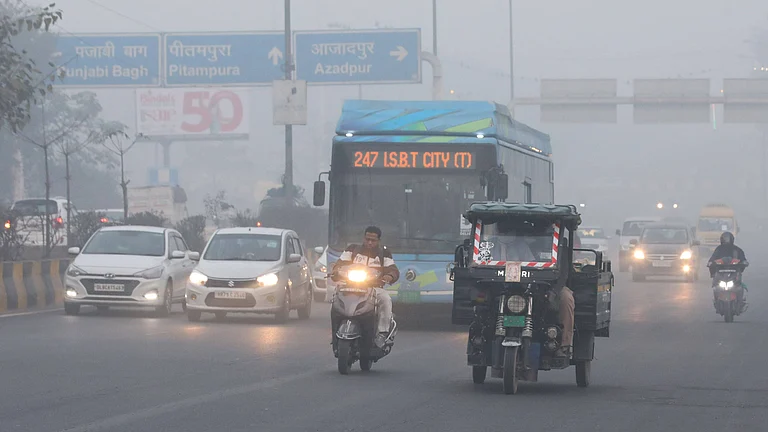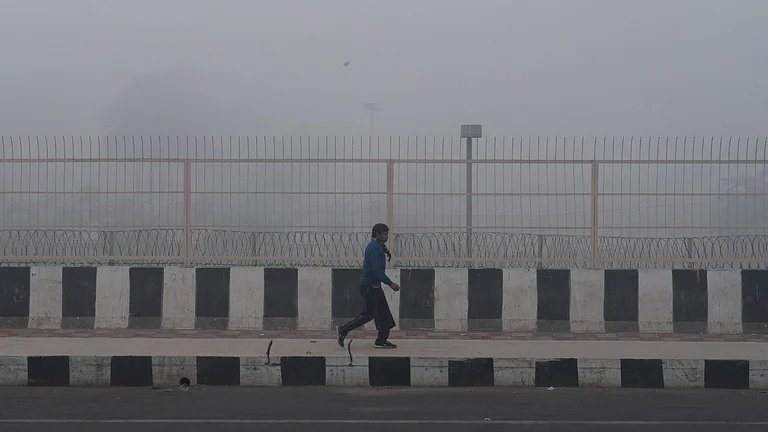Delhi was blanketed in dense fog on Wednesday morning as a cold wave swept across the city, bringing a sharp drop in temperatures and chilly winds, which led to reduced visibility, reported ANI.
The minimum temperature is expected to plunge to 8 Degrees Celsius for the day whilst the maximum temperature is expected to remain at 16 Degrees Celsius, along with "very dense fog", as per the India Meteorological Department (IMD).
The nail-biting cold has led the homeless people to take refuge in night shelters built in different parts of the city. Visuals from the Sarai Kale Khan area, Ram Leela Maidan area and Nigam Bodh Ghat area showed a significant number of people taking refuge at night homes with all their beds occupied, reported ANI.
The Delhi Urban Shelter Improvement Board (DUSIB) has also set up 235 pagoda tents to provide shelter to homeless people. Night shelters have been set up in several areas of the national capital, including AIIMS, Lodhi Road, and Nizamuddin flyover.
Air Quality Concerns
According to the India Meteorological Department (IMD), the minimum temperature recorded on January 7 was 10.5 Degrees Celsius.
Meanwhile, the Air Quality Index (AQI) in Delhi remained in the “very poor" category, standing at 326 at 6 a.m. on Wednesday as per the data of the Central Pollution Control Board. The AQI in Delhi has constantly remained in "very poor" category in the past few days.
According to the Air Quality Early Warning System (AQEWS) bulletin for Delhi, wind speed is expected to less than 8 kmph during morning. Thereafter, it is expected to gradually increase becoming 10-12 kmph during the afternoon. The AQEWS has also forecast smog and shallow fog conditions during the evening and night.
An AQI between zero and 50 is considered "good", 51 and 100 "satisfactory", 101 and 200 "moderate", 201 and 300 "poor", 301 and 400 "very poor", and 401 and 500 "severe".
The Commission for Air Quality Management (CAQM) lifted the Stage-III restrictions under the Graded Response Action Plan (GRAP) in Delhi-NCR on January 5, considering a notable improvement in the air quality index (AQI). However, on January 5, the officials stated that Stage-I and Stage-II measures would remain in effect.































